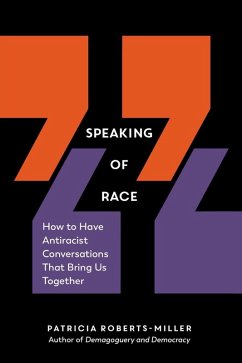Readers of all levels and backgrounds will appreciate the clarity with which Roberts-Miller approaches a topic so often driven by powerful emotion.Choice
It's easy to say that racism is wrong. But it's surprisingly hard to agree on what it is. Does a tired stereotype in your favorite movie make it racist? Does watching it anyway mean you're racist? Even among like-minded friends, such discussions can quickly escalate to hurt feelings all aroundand when they do, we lose valuable opportunities to fight racism.
Patricia Roberts-Miller is a scholar of rhetoricthe art of understanding misunderstandings. In Speaking of Race, she explains why the subject is a third rail and how we can do better: We can acknowledge that, in a racist society, racism is not the sole provenance of bad people. We can focus on the harm it causes rather than the intent of offenders. And, when someone illuminates our own racist blind spots, we can take it not as a criticism, but as a kindnessand an opportunity to learn and to become less racist ourselves.
It's easy to say that racism is wrong. But it's surprisingly hard to agree on what it is. Does a tired stereotype in your favorite movie make it racist? Does watching it anyway mean you're racist? Even among like-minded friends, such discussions can quickly escalate to hurt feelings all aroundand when they do, we lose valuable opportunities to fight racism.
Patricia Roberts-Miller is a scholar of rhetoricthe art of understanding misunderstandings. In Speaking of Race, she explains why the subject is a third rail and how we can do better: We can acknowledge that, in a racist society, racism is not the sole provenance of bad people. We can focus on the harm it causes rather than the intent of offenders. And, when someone illuminates our own racist blind spots, we can take it not as a criticism, but as a kindnessand an opportunity to learn and to become less racist ourselves.
Dieser Download kann aus rechtlichen Gründen nur mit Rechnungsadresse in A, D ausgeliefert werden.


